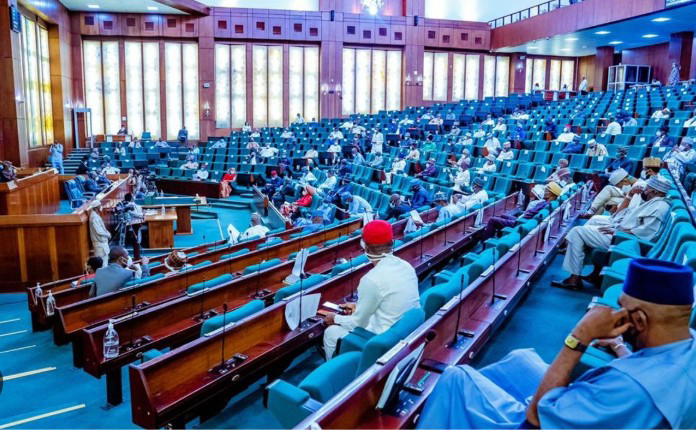By Gift Chapi-Odekina, Abuja
The Speaker of the House of Representatives, Hon. Abbas Tajudeen, and the Chairman of the House Committee on Petroleum Resources (Downstream), Hon. Ikenga Imo Ugochinyere, have called for a total overhaul of Nigeria’s downstream petroleum industry to achieve energy self-sufficiency, transparency, and sustainable growth.
Speaking at the First Annual Downstream Petroleum Week held in Abuja on Monday, Speaker Abbas described the event as “one of the most defining moments in the evolution of the downstream petroleum sector.”
The week-long conference, organised by the House Committee on Petroleum Resources (Downstream) in partnership with the Federal Ministry of Petroleum Resources and the Nigerian Midstream and Downstream Petroleum Regulatory Authority (NMDPRA), brought together top industry players, regulators, labour leaders, and private investors, including the Dangote Group, PENGASSAN, and NNPCL.
Declaring the event open, Abbas said the initiative marked a milestone in the National Assembly’s efforts to strengthen Nigeria’s energy architecture, adding that it aligned with President Bola Ahmed Tinubu’s Renewed Hope Agenda of reforming key economic sectors.
He noted that the effective take-off of the Dangote Refinery had transformed Nigeria’s refining landscape, setting a new path toward energy independence and industrial expansion.
“Nigeria is at a critical point in its drive for industrialization,” Abbas said. “This conference could not have come at a better time. Our duty as legislators is to provide the policies and oversight that will strengthen the downstream sector for a more secure, efficient, and resilient economy.”
The Speaker stressed that the success of the downstream sector hinged on improved infrastructure, policy clarity, and local investment, especially in Liquefied Petroleum Gas (LPG) and Compressed Natural Gas (CNG) facilities.
He also called for actionable solutions to energy security challenges, pipeline vandalism, pricing inconsistencies, and full implementation of the Petroleum Industry Act (PIA 2021), which, he said, had restored investor confidence and promoted transparency.
“This maiden Annual Downstream Week reflects our commitment to evidence-based policymaking and stakeholder engagement,” Abbas added. “We expect innovative ideas that can transform our downstream sector and move our economy forward.”
In his keynote address, Hon. Ugochinyere described the summit as “a national platform for reflection and renewal,” noting that the downstream sector was undergoing a historic transformation marked by increased refining capacity, industrial growth, and renewed investor confidence.
He highlighted ongoing projects including the 650,000 barrels-per-day Dangote Refinery, the Waltersmith Modular Refinery in Imo State (expanding from 5,000 to 50,000 barrels per day), the OPAC Refinery in Delta State, and the Indorama Petrochemical expansion, which has boosted fertilizer production and gas utilization.
“The transformation we are witnessing is born of courage, clarity, and innovation,” Ugochinyere said. “Our downstream sector is now more open, efficient, and ready for investment. Nigeria must refine what it produces and consume what it refines.”
He commended the Nigerian Upstream Petroleum Regulatory Commission (NUPRC) for enforcing the Domestic Crude Oil Supply Obligation (DCSO), which guarantees crude access for local refineries before exports.
Ugochinyere revealed that the Committee would soon introduce new legislative measures to promote and protect local refining, including:
Granting local refineries first right of refusal on crude allocations.
Streamlining regulations to eliminate bureaucratic bottlenecks.
Developing a Refinery Protection and Promotion Bill to classify refineries as strategic national assets.
Ensuring unhindered access to feedstock and security for refinery operations nationwide.
“Progress must be matched with persistence,” Ugochinyere said. “We must sustain investor confidence, create jobs, and strengthen our energy independence. This is how nations grow—by empowering local industries to produce, compete, and thrive.”
The lawmaker also cautioned against industrial unrest, urging unions and operators to prioritize dialogue and mutual respect.
“No reform can succeed without industrial harmony,” he said. “While labour issues are inevitable, they must never be allowed to undermine productivity or national stability.”
He emphasized that compliance with tax, safety, and environmental standards was a patriotic duty, commending regulators such as the NMDPRA and NUPRC, as well as marketers under PETROAN, NOGASA, MEMAN, and IPMAN for maintaining energy supply stability.
Both leaders reaffirmed the Legislature’s commitment to work with the Executive, regulators, and private sector players to secure Nigeria’s energy future.
“Together, we can make Nigeria the energy powerhouse of Africa,” Ugochinyere declared, echoing Speaker Abbas’ call for “collaboration, innovation, and accountability” in the oil and gas industry.
The 2025 Downstream Petroleum Week continues with panel discussions, exhibitions, and technical sessions on refining, renewable integration, decarbonisation, and investment opportunities in the Nigerian energy landscape.
The post Reps push for full energy reform as Abbas, Ugochinyere lead call for self-sufficiency appeared first on Vanguard News.

